Yamaha Motor Taiwan celebrates the delivery of 10 million two-wheelers
Japanese two-wheeler manufacturer Yamaha Motor announced that its local offshoot in Taiwan, Yamaha Motor Taiwan (YMT), has already produced 10 million two-wheelers since its establishment in 1987. YMT was established in 1987 as a local subsidiary of Yamaha Motor for two-wheeler production in the city of Taoyuan. Most of the scooters produced there are for the Taiwanese and Japanese markets. Annual production capacity has averaged 330,000 units in recent years, of which 250,000 were destined for Taiwan and 80,000 for export, including to Japan. In Taiwan, out of a population of 24 million, more than 13 million two-wheelers are registered. Annual sales of two-wheelers are around 850,000 units, according to Yamaha. Yamaha said that in Taiwan, scooters are used as a universal means of transportation in everyday life. Scooters and other vehicles usually require VSCC certification to be registered in Taiwan.
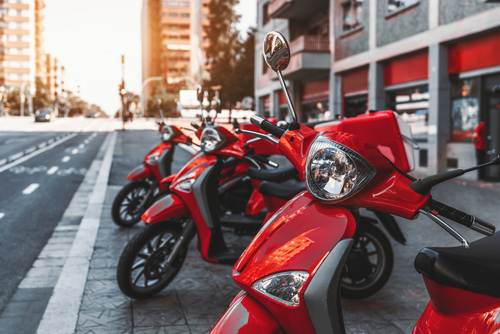
In order to import products into Taiwan, it must be ensured that they meet local safety and quality standards. This is ensured by specific, product-dependent certifications, which certify that the products comply with the relevant regulations in Taiwan. The Vehicle Safety and Certification Center (VSCC) is responsible for vehicles and products of the automotive industry in Taiwan. The authority was established in 2009 by the Ministry of Transport and Communications in the city of Lugang. In scope, the certifications for Taiwan are similar to the Chinese CCC and CEL certifications.
MPR China Certification GmbH has many years of experience in Taiwan certification and competent local partners. We will be pleased to advise you without obligation about the scope and procedure of a Taiwan certification.
Please do not hesitate to contact us for further details and consultation. You can contact us via e-mail, or call us (UK: +44 2071931135, Rest of Europe: +49 69 2713769150, US: +1 773 654-2673).
You can also check out our free Taiwan-Brochure, which can be downloaded right here.
Please don’t hesitate to also use our chat-window in the bottom right corner if you have any questions. (Please check your browser settings if you can’t see the window)
RCEP free trade agreement helps Chinese engine manufacturer gain momentum
Engine manufacturer Guangxi Yuchai Machinery Group Co, Ltd, or Yuchai, plans to introduce environmentally friendly powertrains for foreign markets in the coming years. The leading Chinese internal combustion engine manufacturer made the announcement recently after the Regional Comprehensive Economic Partnership (RCEP) free trade agreement took effect in early January 2022. RCEP, the world’s largest free trade agreement, involves 15 countries, mostly from Southeast Asia. In addition to the markets covered by RCEP, Yuchai is also looking to expand its presence in Africa, the United States and the European Union. The company is also expanding its research capabilities to offer economical, durable and high-performance engines to global customers. Applications for Yuchai’s engines range from trucks, buses, ships, and power generation to agricultural and construction machinery and manufacturing industries. Yuchai was founded in 1951 and employs about 15,000 people. Currently, the company operates more than 30 subsidiaries with total assets of 50 billion yuan ($7.84 billion). The company has production sites in many provinces in China, including Guangdong, Jiangsu, Anhui, Shandong, Hubei, Sichuan and Liaoning. Vehicles and components must be awarded a CCC certificate in order for the products to be exported to China or manufactured locally.
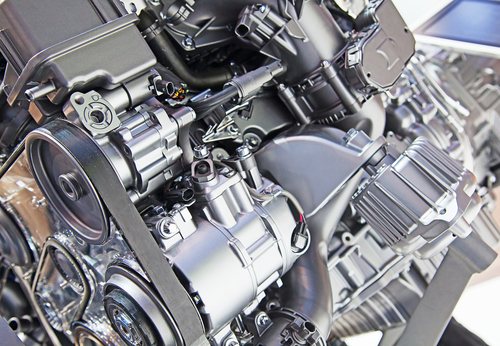
Due to the central location of the company’s headquarters in Yulin, Guangxi Zhuang autonomous region, within Asian countries, the state-owned Yuchai Company could ship more than 260,000 engines to surrounding countries by the end of 2021. Despite the impact of the COVID-19 pandemic, Yuchai was able to benefit from the China-ASEAN Free Trade Agreement as well as the New Silk Road (also known as the Belt and Road Initiative). As a result, 20,596 engines were shipped to various ASEAN member countries last year. This represents a 63 percent increase over the previous year.
Yuchai company CEO Li Hanyang said that in view of the rising environmental awareness of other countries coupled with the expansion of public transportation and stricter emission standards, the company is well prepared. In late December 2021, Yuchai unveiled China’s first hydrogen combustion engine for commercial vehicles, the YCK05N. In successful test runs, the efficiency of the new unit was comparable to fuel cell powertrains. The new engine is based on high-pressure multi-point injection with turbocharger and can be used in many applications such as municipal and cleaning vehicles as well as logistics and delivery. Furthermore, Yuchai has a hydrogen combustion engine for heavy-duty vehicles, the YCK15N, under development, which is expected to be ready for the market in the first half of 2022.
CCC certification is a complex project that requires professional support at all stages.
For more information on how CCC certification, the CCC Self-Declaration and voluntary CCAP or CQC certification may affect your company, or for more information about CCC certification in general, the process, and the associated costs, please visit our website and our News Section where you will find current updates twice a week.
Please do not hesitate to contact us for further details and consultation: You can contact us via e-mail, or call us (UK: +44 2071931135, Rest of Europe: +49 69 2713769150, US: +1 773 654-2673).
Please don’t hesitate to also use our chat-window in the bottom right corner if you have any questions. (Please check your browser settings if you can’t see the window)
You can also check out our free CCC-Brochure, which can be downloaded right here as a PDF file or you consult our book (in English) “A Brief Guide to CCC: China Compulsory Certification”, which can be found directly here on Amazon.
Here you can download our brochure about the CCC Self-Declaration.
Here you can download our brochure about the voluntary CCAP or CQC certification.
Chinese EV makers find new niche market for delivery trucks in Japan
Logistics companies in Japan are trying to cut costs and make the most of the online shopping boom during the covid pandemic. Chinese EV manufacturers, whose delivery vans make delivering shipments not only cheaper but also cleaner, are coming in handy. Tokyo-based SBS Holdings is a logistics company that provides delivery services. Recently, the company announced it was buying 2,000 light delivery trucks from Japanese EV startup folofly. The vehicles will be produced by a subsidiary of Dongfeng Motor Group and other Chinese vehicle manufacturers. In addition, another Japanese logistics service provider, Sagawa Express, plans to purchase 7,200 electric mini-vans from Guangxi Automobile Group. Vehicles and components must be awarded a CCC certificate in order for the products to be exported to China or manufactured locally.
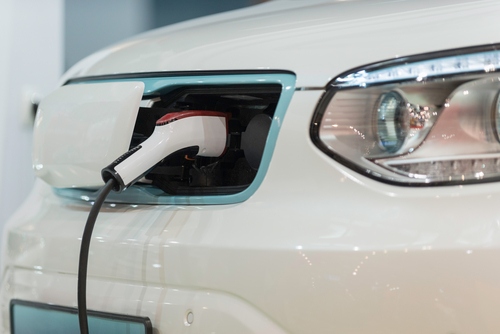
“Japanese-made electric cars are beyond our budget,” said SBS Holdings President Masahiko Kamata. “Japanese automakers say it is impossible to lower prices. Therefore, we saw no other option but to buy cheaper cars from China. We can’t expect our customers to pay more for delivery just because we own expensive delivery vehicles,” Kamata added. In the future, SBS expects to have a fleet of about 10,000 electric delivery trucks for e-commerce deliveries. The small trucks have a range of about 200 kilometers on one battery charge and cost around $33,000.
Although Japan is not currently a big market for EVs – just 1 percent market share compared with 30 percent in some Chinese cities – automakers from China see their opportunity. BYD Co, which is financially backed by Warren Buffett and others, already has about 70 percent market share in electric buses in Japan. BYD aims to have about 4,000 buses in operation there by 2030. “Japan has a well-developed automotive industry due to its quality-oriented market. Therefore, entering the market there is an important step,” a BYD spokesperson said. The companies involved in the current deals, however, were reluctant to provide details. A spokesman for Dongfeng Motors did not respond to press inquiries. Guangxi Automobile said only that the deal would accelerate the development of Japan’s electric delivery van market.
CCC certification is a complex project that requires professional supervision at all stages. For more information on how CCC certification, the CCC Self-Declaration and voluntary CCAP or CQC certification may affect your company, or for more information about CCC certification in general, the process, and the associated costs, please visit our website and our News Section where you will find current updates twice a week.
Please do not hesitate to contact us for further details and consultation. You can contact us via e-mail, or call us (UK: +44 2071931135, Rest of Europe: +49 69 2713769150, US: +1 773 654-2673).
Please don’t hesitate to also use our chat-window in the bottom right corner if you have any questions. (Please check your browser settings if you can’t see the window)
You can also check out our free CCC-Brochure, which can be downloaded right here as a PDF file or you consult our book (in English) “A Brief Guide to CCC: China Compulsory Certification”, which can be found directly here on Amazon.
Here you can download our brochure about the CCC Self-Declaration.
Here you can download our brochure about the voluntary CCAP or CQC certification.
Honor presents its first foldable smartphone
Chinese smartphone manufacturer Honor Device Co, Ltd. unveiled its first foldable smartphone, the “Magic V” model, in early January 2022. With this step, the company aims to further spread foldable smartphones and hopes to help them go from a niche market to a mass product. The market launch of the Honor Magic V is illustrated by the manufacturer’s entry into this product category, where competitors like Huawei, Oppo and Xiaomi are already established. The Magic V has a 7.9-inch foldable screen that can be folded completely to protect the display. It also has an external 6.45-inch screen like conventional smartphones. Honor writes that the external display should make it easier for users to enter text as well as keep frequently used applications in view. Smartphones and electronic components must be awarded a CCC certificate in order for the products to be exported to China or manufactured locally.
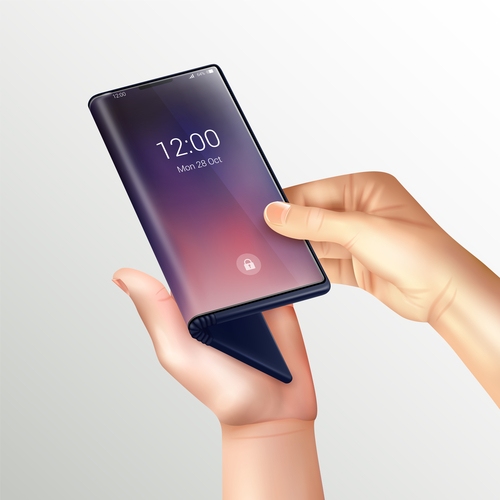
Speaking to Chinadaily, Honor CEO Zhao Ming said that foldable smartphones have been seen more as an innovative luxury product in the past. Now they want to bring the new product to the mainstream market, Zhao adds. In China, the Magic V will retail for around $1,569 (RMB 9,999). Honor also improved its operating system to make it more suitable for foldable smartphones. A report by the market research company “Counterpoint Research” estimates that around 9 million foldable smartphones were sold in 2021. This represents a threefold increase compared to the previous year 2020, and market researchers expect the delivery of ten times the amount of foldable cell phones by 2023.
CCC certification for this and other product categories is a complex project that requires professional supervision at all stages. For several years, MPR China Certification GmbH has been entrusted with large CCC projects for the vehicle manufacturers Lotus, Tesla and Bugatti. We will be pleased to advise you without obligation about the scope and requirements of a China CCC certification.
Please do not hesitate to contact us for further details and consultation. You can contact us via e-mail, or call us (UK: +44 2071931135, Rest of Europe: +49 69 2713769150, US: +1 773 654-2673).
Please don’t hesitate to also use our chat-window in the bottom right corner if you have any questions. (Please check your browser settings if you can’t see the window)
You can also check out our free CCC-Brochure, which can be downloaded right here as a PDF file or you consult our book (in English) “A Brief Guide to CCC: China Compulsory Certification”, which can be found directly here on Amazon.
Here you can download our brochure about the CCC Self-Declaration.
Here you can download our brochure about the voluntary CCAP or CQC certification.
CATL, China’s largest EV battery manufacturer, launches EVOGO battery swap service
Contemporary Amperex Technology Co, or CATL, recently introduced EVOGO battery replacement service to capitalise on the growing EV car market in China. EVOGO’s services are delivered via a mobile app that allows customers to swap their EV’s depleted battery at a service station instead of waiting until charging is complete. CATL made the announcement during an online launch event in mid-January. According to senior general manager of CATL subsidiary Contemporary Amperex Energy Service Technology, Chen Weifeng, EVOGO will initially open in 10 Chinese cities. However, the manager did not provide further details on the stations or the vehicles used. Vehicles and components must be awarded a CCC certificate in order for the products to be exported to China or manufactured locally.
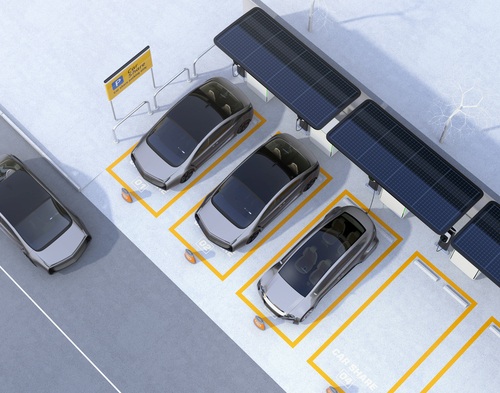
EV manufacturers such as NIO and battery makers such as CATL are increasingly launching battery swap services to reduce the initial cost of an EV and ease fears of a short range. China’s so-called “New Energy Vehicles (NEVs)”, which include EVs as well as hybrids and fuel cell vehicles, reached record sales of 2.99 million units in 2021. This corresponds to a share of 14.8 percent of the total Chinese vehicle market, figures from the Chinese Passenger Car Association show. According to UBS estimates, three out of five vehicles will be purely electric by 2030. The Chinese government expects a market share of 20 percent by 2025.
CATL presented its Choco-SEB battery, which is used in the swapping service, at the same time as the market launch of EVOGO. The energy storage system provides a range of 200 km and can reportedly be fitted in 80 per cent of all EVs currently on the market as well as new models. “Customers can install one to three batteries, depending on the desired range, in their vehicle,” said CATL officer Chen Weifeng. A standard changing station can hold 48 Choco-SEB batteries and occupies the footprint of three parking spaces, and it takes about a minute to change a battery. The Chinese e-car manufacturer NIO is currently the market leader in battery changing services. NIO has already built 700 exchange stations in the past year and plans to build another 3,700 stations by the end of 2025.
For more information on how CCC certification, the CCC Self-Declaration and voluntary CCAP or CQC certification may affect your company, or for more information about CCC certification in general, the process, and the associated costs, please visit our website and our News Section where you will find current updates twice a week.
Please do not hesitate to contact us for further details and consultation. You can contact us via e-mail, or call us (UK: +44 2071931135, Rest of Europe: +49 69 2713769150, US: +1 773 654-2673).
Please don’t hesitate to also use our chat-window in the bottom right corner if you have any questions. (Please check your browser settings if you can’t see the window)
You can also check out our free CCC-Brochure, which can be downloaded right here as a PDF file or you consult our book (in English) “A Brief Guide to CCC: China Compulsory Certification”, which can be found directly here on Amazon.
Here you can download our brochure about the CCC Self-Declaration.
Here you can download our brochure about the voluntary CCAP or CQC certification.


